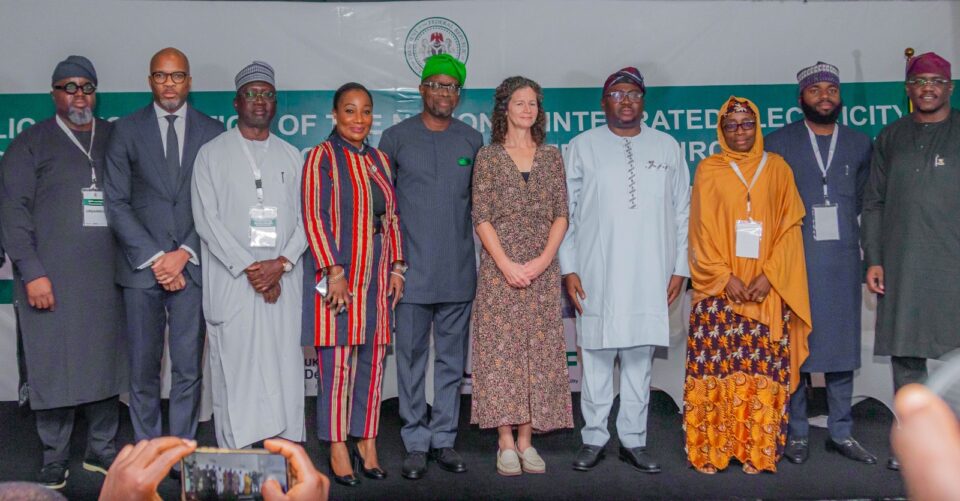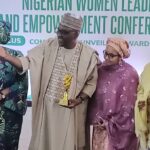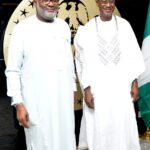The Minister of Power, Adebayo Adelabu, on Thursday in Abuja formally unveiled the the Nigeria Integrated Electricity Policy (NIEP) in a landmark step toward advancing Nigeria’s power sector.
The NIEP was developed through
a collaborative effort involving power sector professionals, donor partners—including the African
Development Bank (AfDB), the World Bank, the United Nations Development Programme (UNDP), the Deutsche Gesellschaft für Internationale Zusammenarbeit (GIZ), the Tony Blair Institute (TBI) and the United Kingdom Nigeria Infrastructure Advisory Facility (UKNIAF).
The event, organised by the Federal Ministry of Power with support from the UK Foreign,
Commonwealth and Development Office (FCDO) through UKNIAF, had in attendance Ministers,
members of the Interministerial Power Sector Group, Donor Partners and private sector executives, thus underscoring the extensive partnership and a shared commitment to establishing a sustainable and inclusive electricity sector in Nigeria.
It served as a platform for the official presentation of the Nigeria Integrated Resource Plan (NIRP) 2024, the first of its type to be prepared by the Federal Government of Nigeria for electricity sector planning
purposes.
The NIRP 2024 is a strategic blueprint designed to optimise the country’s power generation,
transmission and distribution infrastructure at the least-cost and provide guidance on the energy
development requirements to the sector stakeholders.
Since January 2022, the FCDO, through its flagship programme in Nigeria – UKNIAF, provided critical
technical support to the Federal Ministry of Power and the Nigerian Electricity Regulatory Commission
(NERC) in the development of the NIRP, ensuring a data-driven approach to addressing Nigeria’s
power sector challenges; reinforcing its long-standing commitment to strengthening Nigeria’s power sector and fostering an enabling environment for private sector participation.
According to a statement issued by the organisers, the NIEP and NIRP 2024 represent critical milestones in Nigeria’s electricity reform and transformation journey and demonstrate the country’s commitment to evidence-based planning and sustainable energy development.
In addition to the Presentation of the NIEP and NIRP 2024, the event featured a private sector-focused panel discussion on investment opportunities arising from both framework documents.
“Today marks a turning point in our nation’s energy landscape. The integration of the NIRP with our National Integrated Electricity Policy lays the foundation for transformative investments in generation, transmission, and distribution.
“This milestone secures our energy future and creates an enabling legal and regulatory environment that is highly conducive to both local and international private sector participation”, the Minister of Power stated during his opening address.
Engr Frank Edozie, Power Component Lead
at UKNIAF, stated that “UKNIAF is proud to support this catalytic initiative. Our support in developing the IRP and NIEP underscores our commitment to Nigeria’s power sector reform and reinforces the country’s promise as a premier destination for sustainable energy investment.
“These strategic plans create a pathway for increased private sector participation by establishing a transparent, stable and conducive environment for investments to drive growth and innovation across the power value chain.”
Key highlights from the NIEP & NIRP include:
• Robust Legal and Regulatory Framework: Anchored in the reforms of the Electricity Act 2023, the NIEP establishes a transparent and competitive market environment that streamlines licensing and
regulatory compliance, thereby boosting investor confidence and facilitating public-private
partnerships.
• A Blueprint for Sustainable Electrification: The NIRP integrates evidence-based planning with
actionable investment strategies, ensuring that supply-side resources and demand-side efficiency
measures are optimally balanced for least-cost, sustainable electrification.
• Investment Opportunities across the Value Chain: The NIRP provides clear guidelines for phasing
out inefficient self-generation practices and boosting renewable energy investments—particularly in
solar, hydro, and gas technologies enhanced with carbon capture solutions. This fosters vast
opportunities for investors to support least-cost grid expansion and modernisation efforts.
“As Nigeria advances toward becoming a leading economy in Sub-Saharan Africa regarding reliable,
affordable and sustainable energy, the event marks a significant step in transforming the electricity.
With these strategic measures in place, the nation is poised to attract unprecedented investment, drive
innovation and create jobs – ensuring millions of Nigerians gain improved access to quality electricity”, the statement added.



